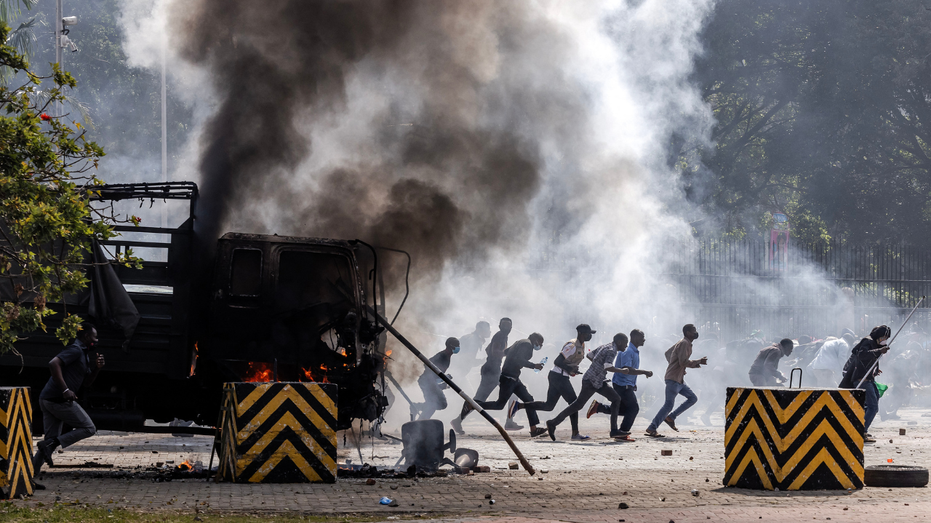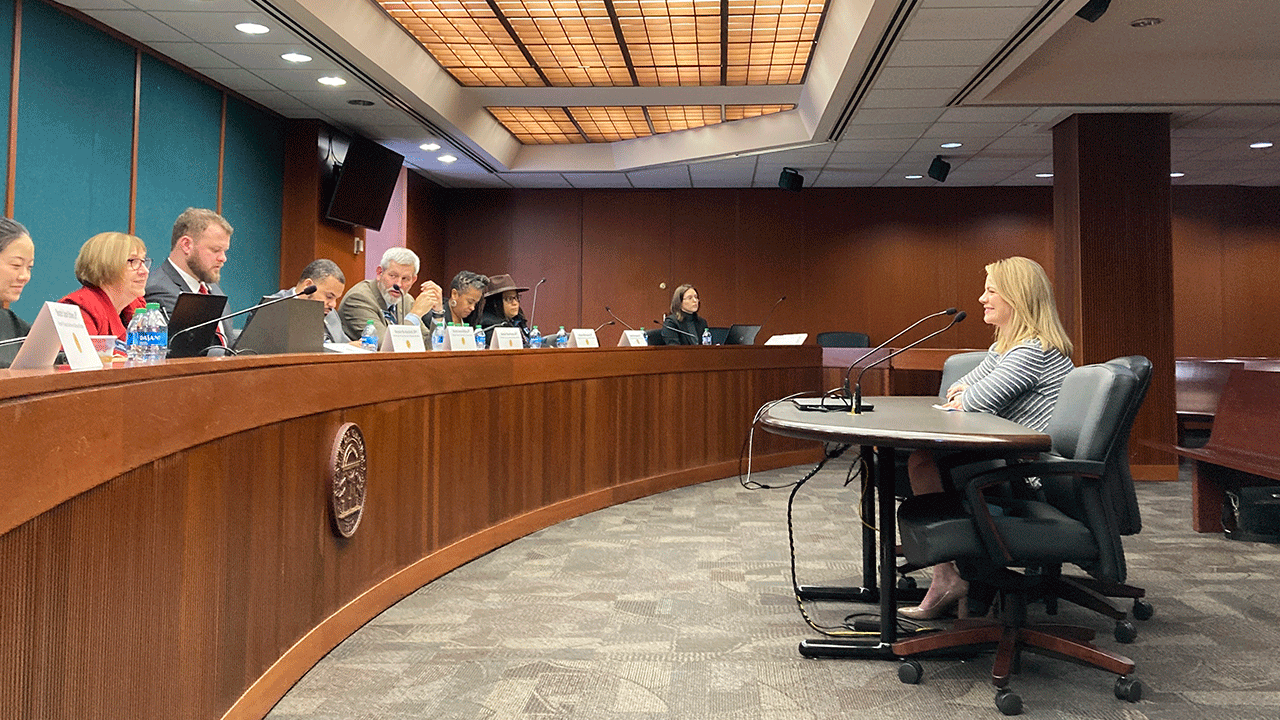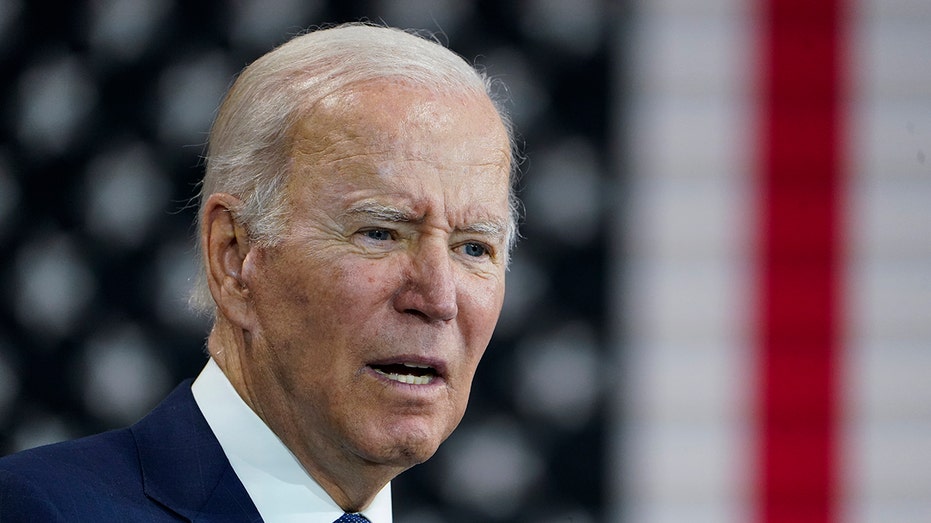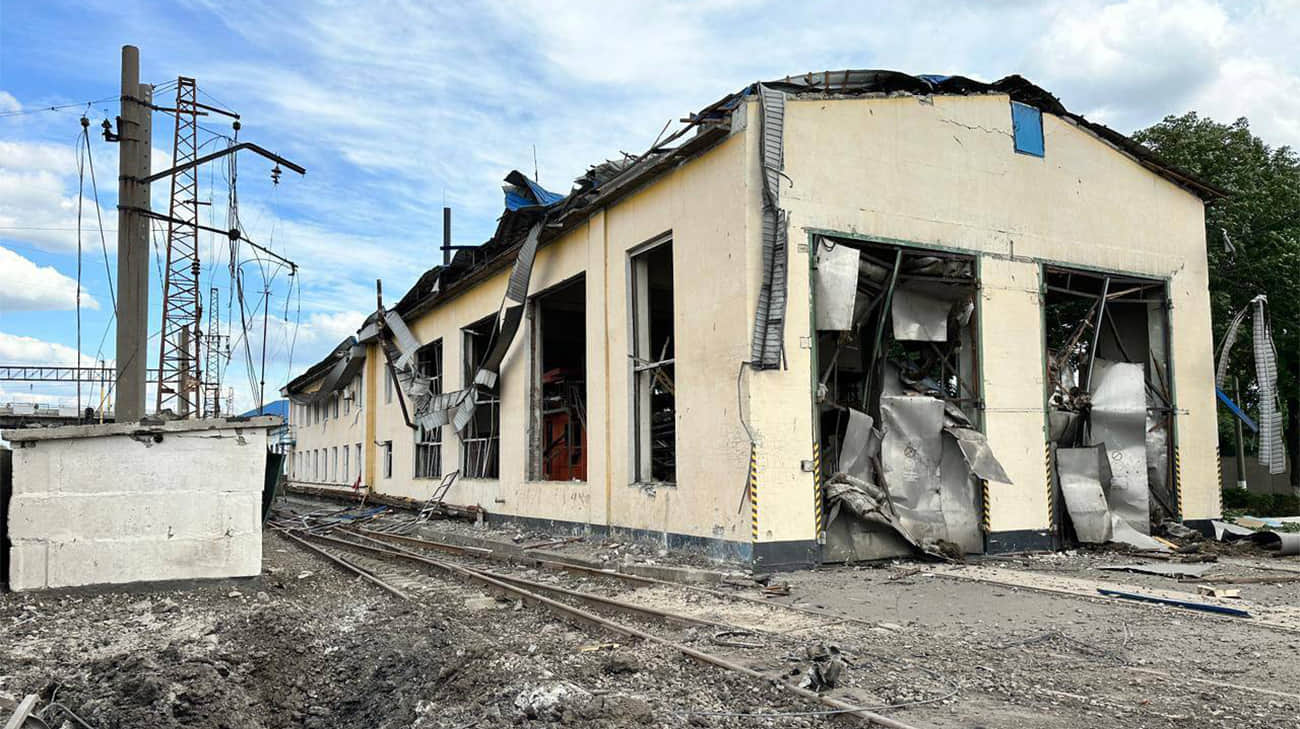Kenyan police confront protesters day after president withdraws tax increase bill
Protests have continued across Kenya despite President William Ruto's withdrawal of a controversial tax hike bill, which sparked deadly clashes, officials say.

Kenyan police fired teargas at dozens of protesters in Nairobi and blocked off roads to the presidential palace on Thursday as crowds took to the streets again nationwide, even after the president bowed to pressure to withdraw a tax hike bill.
Crowds called for President William Ruto to go further and step down in the capital, Mombasa, Kisumu and other centers, though the turnout was well down from the height of the mass rallies sparked by the tax measures over the past week.
Ruto withdrew the legislation including new taxes and hikes on Wednesday, a day after at least 23 people were killed in clashes at protests sparked by his plans, and parliament was briefly stormed and set alight.
KENYA'S PRESIDENT BACKTRACKS ON CONTROVERSIAL TAX INCREASES AFTER DEADLY PROTESTS SHAKE NATION
He is grappling with the most serious crisis of his two-year-old presidency as the youth-led protest movement has grown rapidly from online condemnations of the tax hikes into mass rallies demanding a political overhaul.
Dropping the bill has also hit plans to reduce the budget deficit and borrowing, as demanded by lenders including the International Monetary Fund.
Seven people were rushed to hospital with gunshot wounds in the town of Homa Bay in western Kenya on Thursday, Citizen TV reported, without going into further detail. Police commander Hassan Barua said he had sent officers to check on the report.
In Nairobi, police and soldiers patrolled the streets and blocked access to State House. Police fired teargas to disperse several dozen people who had gathered in the center of the city.
UN-BACKED CONTINGENT OF FOREIGN POLICE ARRIVES IN HAITI AS KENYA-LED FORCE PREPARES TO FACE GANGS
Doctors volunteer group Medics for Kenya said its staff at the Jamia Mosque/Crescent hospital had been hit by teargas, and that it condemned in "the strongest terms possible violence meted out on our volunteer medical teams".
Reuters reporters saw army vehicles on the streets after the government deployed the military to help police.
Elsewhere, hundreds of protesters gathered in the port city of Mombasa and in the western city of Kisumu, local television footage showed, although those gatherings appeared peaceful.
"We are only coming here so that our voice can be heard, us as Gen Z, us as Kenyans, we are one," said Berryl Nelima in Mombasa. "So the police should stop killing us, we are just peaceful protesters, we are unarmed."
The protest movement has no formal leadership structure and has largely responded to messages, banners and slogans on social media. Posts on Thursday suggested protest supporters were divided on how far to carry the demonstrations.
"Let's not be foolish as we fight for a better Kenya," Boniface Mwangi, a prominent social justice activist, said in an Instagram post.
He voiced support for demonstrations on Thursday but opposed calls to invade State House, the president's formal offices and residence, a move that he said could spur more violence and be used to justify a crackdown.
KENYAN PROTESTERS VOW TO CONTINUE DEMONSTRATIONS AFTER VIOLENT CLASHES LEAVE 23 DEAD
While some protest supporters said they would not demonstrate on Thursday as the finance bill had been scrapped, others pledged to press on, saying only Ruto's resignation would satisfy them.
"Right now is not about just the finance bill but about #RutoMustGo," political activist and protester Davis Tafari told Reuters in a text message. "We have to make sure that Ruto and his MPs have resigned and fresh elections are held ... We occupy State House for dignity and justice."
Eli Owuor, 34, from Kibera, an informal settlement and a traditional hotbed of protests, also said he was prepared to join a push on to State House.
"We may just need to visit Zakayo today in his house to prove that after parliament we can occupy State House," he said, using a nickname protesters have given to Ruto that references a biblical tax collector viewed as corrupt.
In a speech on Wednesday, Ruto defended his push to raise taxes on items such as bread, cooking oil and diapers, saying it was justified by the need to cut Kenya's high debt, which has made borrowing difficult and squeezed the currency.
But he acknowledged that the public had overwhelmingly rejected the finance bill. He said he would now start a dialogue with Kenyan youth and work on austerity measures, beginning with cuts to the budget of the presidency.
The International Monetary Fund, which has been urging the government to cut its deficit to obtain more funding, said it was closely monitoring the situation in Kenya.
"We are deeply concerned about the tragic events in Kenya in recent days," the IMF said in a statement. "Our main goal in supporting Kenya is to help it overcome the difficult economic challenges it faces and improve its economic prospects and the well-being of its people."
Ratings agency Moody's said the shift in focus to cutting spending rather than boosting revenue will complicate the disbursement of future IMF funding and slow the pace of fiscal consolidation.
Analysts at JPMorgan said they had maintained their forecasts for a deficit of 4.5% of GDP in FY2024/2025, but acknowledged the government and IMF targets could be revised in light of recent developments.
They said the Central Bank of Kenya was unlikely to begin cutting rates until the final quarter of this year.



